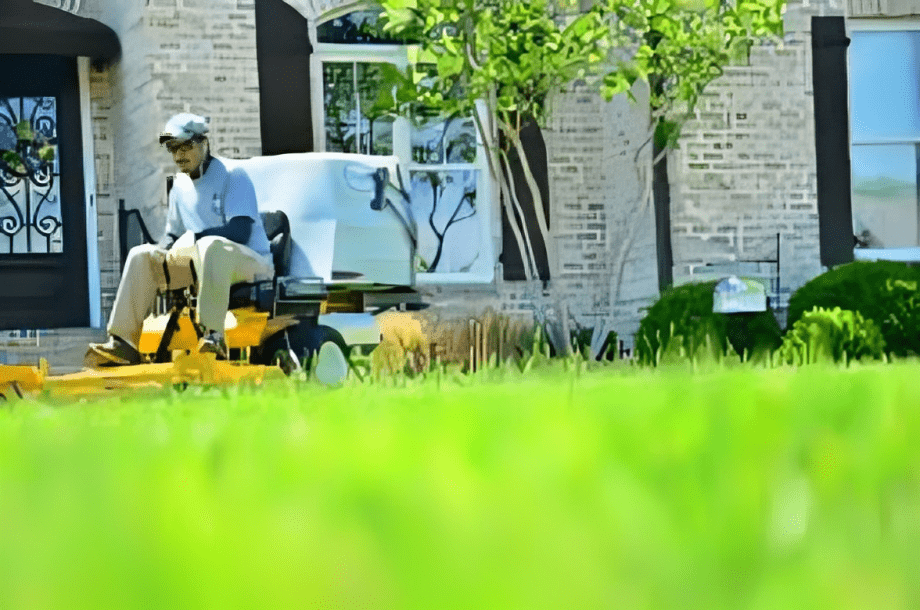introduction
Organic lawn care focuses on natural and sustainable methods Organic Lawn Care Tips: To maintain a healthy lawn, steer clear of synthetic chemicals. It begins with crucial steps like soil testing, lawn preparation, and composting.
followed by core practices such as aeration, proper mowing, and organic fertilization. Weed and pest management utilize natural techniques like using grass clippings and attracting natural predators. Advanced techniques like top-dressing with compost and overseeding further enhance lawn health.
Following a seasonal care calendar and ongoing maintenance ensures the lawn remains vibrant. Embracing imperfections, promoting biodiversity, and troubleshooting common issues are integral to sustainable lawn care.
Understanding Organic Lawn Care tips
Organic lawn care tips emphasize natural and sustainable practices to maintain a healthy lawn ecosystem. It involves various methods and techniques aimed at minimizing environmental impact while promoting long-term lawn health.
What are organic lawn care tips?
Organic lawn care tips involve using natural products and methods to nurture a lush and vibrant lawn without relying on synthetic chemicals. It prioritizes soil health, biodiversity, and sustainability.
Benefits of Organic Lawn Care tips
Organic lawn care offers numerous advantages, including:
- Environmental friendliness
- Improved soil health
- Reduced chemical exposure
- Enhanced biodiversity
- Long-term sustainability
Pros and Cons
While organic lawn care tips have many benefits, they also have some drawbacks. Understanding both sides can help homeowners make informed decisions about their lawn care practices.
Transitioning to Organic Methods
Switching to organic lawn care requires a shift in mindset and practices. Here’s how you can make a smooth transition:
Initial Steps for Organic Lawn Care
Before diving into organic lawn care, it’s essential to lay the groundwork:
Conducting a Soil Test
Testing your soil helps determine its pH levels and nutrient content, guiding your fertilization and amendment efforts.
Preparing the Lawn
Proper lawn preparation sets the stage for successful organic care. This includes addressing any underlying issues like compaction or thatch buildup.
Starting Composting
Composting provides a natural source of nutrients for your lawn and improves soil structure and fertility.
Choosing Appropriate Grass Types
Selecting grass varieties that thrive in your climate and soil conditions reduces the need for excessive maintenance and inputs.
Core Practices for Organic Maintenance
Maintaining an organic lawn involves several key practices:

Sustainable lawn management
Aerating the lawn improves soil aeration and water infiltration, while removing thatch prevents it from suffocating the grass.
Proper Mowing Techniques
Mowing at the correct height and frequency promotes healthy grass growth and reduces weed competition.
Watering Strategies
Efficient watering practices ensure your lawn receives adequate moisture without wasting water.
Fertilizing Organically
Using organic fertilizers nourishes the soil and provides essential nutrients to support healthy grass growth.
Natural Weed and Pest Management
Managing weeds and pests organically is crucial for maintaining a thriving lawn ecosystem.
Organic grass maintenance
Leaving grass clippings on the lawn returns valuable nutrients to the soil, while composting organic matter enriches soil fertility.
Controlling Weeds with Corn Gluten Meal
Corn gluten meal acts as a natural pre-emergent herbicide, inhibiting weed seed germination without harming existing plants.
Managing Pests Without Synthetic Pesticides
Implementing integrated pest management techniques and encouraging natural predators helps control pests without resorting to harmful chemicals.
Understanding Natural Predators
Beneficial insects and birds play a vital role in controlling pest populations and maintaining ecological balance in the lawn.
Advanced Organic Techniques
Taking your organic lawn care to the next level involves advanced practices.
Top-Dressing with Compost
Top-dressing your lawn with compost improves soil structure and adds valuable organic matter.
Overseeding for a Healthy Lawn
Overseeding fills in bare patches and promotes a thick, lush lawn that crowds out weeds.
pH Management with Lime Application
Adjusting soil pH with lime helps optimize nutrient availability and promotes healthy grass growth.
Integration of Beneficial Endophytes
Endophytic fungi can enhance grass resistance to pests and diseases, contributing to overall lawn health.
Seasonal Organic Lawn Care tips Calendar
Adhering to a seasonal lawn care schedule ensures you address your lawn’s changing needs throughout the year:
Spring Preparations and Seeding
Spring is a critical time for lawn care, including seeding and addressing any winter damage.
Summer Maintenance and Irrigation
Proper irrigation and maintenance practices help your lawn withstand summer heat and stress.
Fall Overseeding and Pest Control
Fall is an ideal time for overseeding and addressing pest issues before winter sets in.
Winter Preparations and Dormant Care
Winter lawn care focuses on preparing your lawn for dormancy and protecting it from harsh weather conditions.
Ongoing Maintenance Tips
Maintaining an organic lawn requires ongoing care and attention:
Optimal Grass Height for Different Varieties
Knowing the ideal mowing height for your grass type promotes healthy growth and resilience.
Leaving Grass Clippings for Nutrient Recycling
Mulching grass clippings returns valuable nutrients to the soil and reduces the need for fertilizer.
Sustainable Watering Practices
Implementing water-conserving techniques helps minimize water usage while keeping your lawn healthy.
Avoiding Chemical Pesticides and Herbicides
Eliminating chemical pesticides and herbicides reduces environmental pollution and promotes a safer lawn environment.
Promoting a Healthy Ecosystem
Creating a healthy ecosystem on your lawn fosters resilience and sustainability.
Understanding the Role of Biodiversity
Biodiversity enhances ecosystem stability and resilience, reducing the risk of pest outbreaks and diseases.
Attracting Beneficial Insects and Birds
Encouraging beneficial insects and birds helps control pest populations naturally and promotes biodiversity.
Minimizing Environmental Impact
Reducing your lawn’s environmental footprint through sustainable practices benefits the broader ecosystem.
Balancing Aesthetics with Natural Diversity
Embracing a diverse lawn ecosystem may involve accepting some imperfections in exchange for ecological health.
Troubleshooting Common Issues
Addressing common lawn care challenges requires a proactive and holistic approach:
Identifying and Treating Lawn Diseases
Recognizing symptoms of lawn diseases early allows for prompt treatment and prevention.
Dealing with Common Pests Organically
Implementing natural pest control measures helps manage pest populations without resorting to harmful chemicals.
Addressing Soil Deficiencies Naturally
Correcting soil deficiencies through natural amendments improves overall lawn health and vitality.
Managing Drought and Extreme Weather
Implementing drought-tolerant landscaping techniques and weather-resistant grass varieties helps your lawn withstand environmental stresses.
Embracing Imperfection and Sustainability
Accepting imperfections in your lawn and prioritizing sustainability promotes long-term health and resilience.
Accepting a Diverse Lawn Ecosystem
Celebrating the diversity of plant and animal life in your lawn contributes to its overall health and vitality.
Promoting Resilience Over Uniformity
Embracing a resilient lawn ecosystem that can adapt to changing conditions is key to sustainable lawn care.
Celebrating the Beauty of a Natural Lawn
Appreciating the natural beauty of your lawn, imperfections and all, fosters a deeper connection to the environment.
FAQ,S
- What is the best organic fertilizer for grass?
- The best organic fertilizer for grass often depends on factors such as soil composition, grass type, and climate. However, some popular options include compost, composted manure, seaweed-based fertilizers, and organic granular fertilizers containing natural ingredients like bone meal, blood meal, and kelp.
- How can I promote my grass growth?
- Promoting grass growth organically involves several steps, including proper mowing, watering, and fertilization. Additionally, aerating the soil, overseeding bare patches, and ensuring adequate sunlight can also stimulate healthy grass growth.
- How do I transform my lawn?
- Transforming your lawn into a lush, organic paradise requires a combination of techniques such as soil testing, soil amendment with organic matter like compost, proper watering, and fertilization with organic products. Additionally, implementing sustainable lawn care practices and embracing biodiversity can help rejuvenate your lawn naturally.
- What is organic grass?
- Organic grass is grass that is grown and maintained without the use of synthetic chemicals or pesticides.
It thrives in soil enriched with organic material and is supported by environmentally friendly lawn care practices, nurturing soil health and biodiversity
- Organic grass is grass that is grown and maintained without the use of synthetic chemicals or pesticides.
- What is organic material for lawns?
- Organic materials for lawns include natural substances such as compost, composted manure, grass clippings, and organic mulch. These materials provide essential nutrients to the soil, improve soil structure, and support healthy grass growth without the need for synthetic chemicals.







